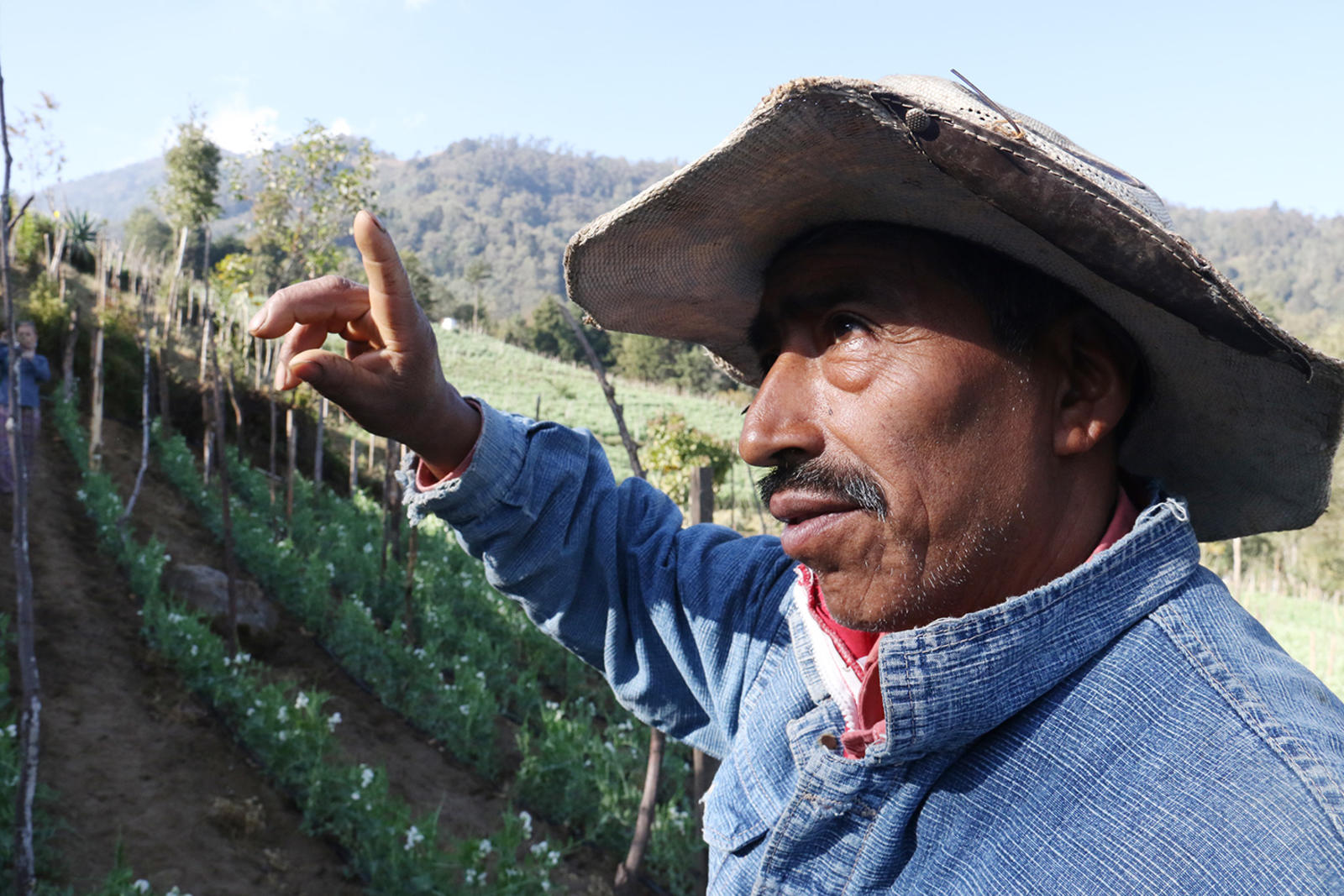April 10, 2017
Reaping the rewards of the fight against hunger and malnutrition in Guatemala
The Guatemalan population faces certain limitations in exercising their rights to proper nutrition, health, water and sanitation, so long as the cycle of poverty continues. To address problems of chronic malnutrition and lack of food security, the Guatemalan Government, alongside development entities, have made a commitment to increase their efforts to end hunger and malnutrition. The joint programme of the SDG Fund, initially implemented on April 2015, has helped to push these efforts forward through a series of interventions designed to help achieve food security and nutrition, particularly in women and in children under five years of age, in the municipality of San Marcos.
As the end of the joint programme approaches, the National Committee of the Joint Programme in Food Security and Nutrition (JP-FSN), carried out through international cooperation and local and national governments, has presented the results of the various projects they’ve undertaken. The JP-FSN has been implemented in over 40 communities in four municipalities of San Marcos. During a field visit to the Village of Villa Hermosa, in the Municipality of Palo Gordo, the JP-FSN demonstrated best practices for agriculture on different types of land. In the village of Tanil, where a number of different vegetables are produced, discussions focused on creating jobs that provide a living wage.
The joint programme emphasizes four different components: local governance, windows of a “thousand days”, food security for families and communication for development. Thirty-two community commissions on food and nutritional security were created to empower and strengthen local communities.
Jorge Chavarría, departmental delegate of the Secretariat of Food Security and Nutrition (SESAN) in San Marcos, provided a detailed account regarding the support the Secretariat provided to the joint programme’s initiatives. “As direct partners of the joint programme and coordinators for the National System of Food Security and Nutrition, the Secretariat is in charge of establishing and operationalizing the municipalities and community commissions in food security and nutrition. Moreover we provide technical assistance for the planning and direction of projects in food security and nutrition, interinstitutional coordination and connecting local governments”.
The Joint Programme is managed by the Sustainable Development Goals Fund (SDG Fund) and implemented by the specialized UN Agencies, such as the United Nations Children's Fund (UNICEF), the World Food Programme (WFP) and the United Nations Development Programme (UNDP), the United Nations Office for Project Services (UNOPS) and also aided by the Spanish Agency for International Development Cooperation (AECID). These UN Agencies seek to provide an integral solution for malnutrition, while emphasizing both the direct and underlying causes through the empowerment of local actors in food security and nutrition.
The joint programme’s execution time is between April 2015 and April 2017, implemented throughout 40 different communities in the municipalities of Tacana, Tajumulco, San Lorenzo y Esquipulas Palo Gordo. There have been 1,935 participating families, with a focus on children between the ages of 1 month to 5 years and potential mothers.
This version is an edited version from the Office of Public information of the Government of Guatemala, read it here (in Spanish). English translation by Raul Rios.







